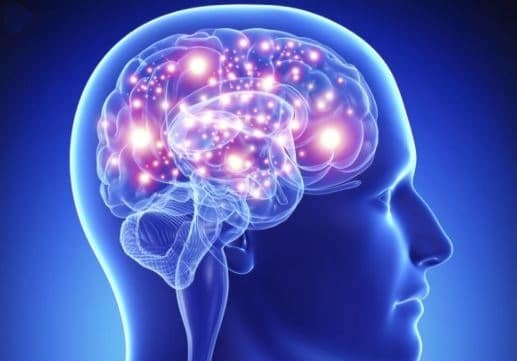Irrespective of age, profession, it is of utmost essential to preserve your grey matter. Whether you are a student, a working professional, entrepreneur, or an aging person, good mental health is vital for your survival. There are many ways through which you can boost your brainpower at any age.
The human brain has immense untapped power; even in old age, it can adapt and evolve; this ability is neuroplasticity. The right kind of stimuli can help the brain form new neural connections, modify existing ones, and rewire.
The human mind can reshape learning experiences and memory. You can boost neuroplasticity and cognition in natural ways, which will increase your ability to learn new things and retain further information for a long time.
Given Below Are Some Tips And Tricks To Increase Your Brain Activity
Contents
Give Your Brain A Stimuli

Your brain develops the most between eight to nine years, so by the time you grow up, your brain develops millions of neural connections, which aid in processing and recalling the information quickly. These neural pathways also help in solving similar problems and carrying out routine work effortlessly. However, if you are doing the same things repeatedly and walking on the beaten track, then you are not giving your brain enough stimuli to grow.
You have to break your patterns and throw new challenges to your brain each day to evolve and adapt to new situations. Your memory is like muscles; the more you use them, the more they become more robust. Similarly, the more you brainstorm, the better will be your cognition and memory retention. The best cognitive skills activities are not mundane and force you to think out of the box.
Critical Elements Of A Good Brain-boosting Activity
No matter how challenging the activity is, if you already know how to crack it, then it’s not a good brain teaser for you. It should be new to you and bring you out of your I know everything zone. To work out your brain, you need to continue acquiring new skills. The most challenging activities require you to be more attentive.
Something you have memorized is easy for your brain, but something you haven’t is complicated. For instance, converting a sentence from your native language to a foreign language will take you some time and effort. Let’s look at some more examples: If you play the keyboard and play a tune that you already know will not require much brain effort, you have memorized it already compared to creating a new one or the one you are playing for the first time.
Begin with easy brain exercises and increase the difficulty level for yourself. Keep pushing yourself, shake up your brain; if you have mastered one level, go to the next level until you start feeling comfortable.
The more engrossed you are in the process of learning, the more are the chances of you thriving through your experience. So choose wisely. Pick the activities that challenge your intelligence quotient and, at the same hand, spark joy in you.
Do you reckon any new skill you wanted to acquire off late, maybe a new language, learning to play a new instrument, playing chess or golf? Any one of these will challenge you and keep you engaged, ultimately impacting your memory.
The Mental Health Benefits Of Exercise

Please don’t be mistaken; mental exercises alone don’t do wonders; you need to do some physical activities and get sweaty. It accelerates the flow of oxygen in your brain, reducing the risk of memory loss, Alzheimer’s diseases, dementia, etc.
Physical exercise releases certain hormones responsible for your happiness and sets you free from stress called endorphins. It plays a vital role in increasing neuroplasticity in the brain.
Brain Boosting Exercise Tips
Activities that keep your blood pumping to boost brain activity and reduce the chance of cognition disorders—aerobics yields explicitly excellent results. Something suitable for your heart is good for the brain as well.
Exercising in the morning helps you clear the sleep fog and increases neural connections, enabling you to learn new things and retain the same for a long time. Complex motor skills exercise or the ones to do with hand-eye coordination are very beneficial for brain development. Exercise helps you break mental fatigue; a walk or a few jumps is good enough to reboot your brain and crack afternoon slumps.
Doze Off

To function your best, take a sound sleep. Nothing can calm and relax the mind as much as a nap can. So, doze off!! And shut your mind for a while. More than 95% of adults need a minimum of eight to nine hours of sleep every day. Sleep deprivation badly impacts your memory. It hampers your problem skills, creativity, and reasoning skills.
Sleep is pivotal to learning and retaining new information. As per research, rest is mandatory for the memory-enhancing activity that only occurs when you are in a deep sleep state.
Stick to a routine, a fixed pattern for sleeping that includes the same time, room, bed, and wake up at the same time every day. Adhere to this routine and try not to have cheat days, even on weekends or holidays.
How To Sleep Better
Limiting your screen time, especially one hour before you hit the bed as the blue radiation emitted by gadgets kills the sleep hormones. Reduce your caffeine intake. Take a warm water shower before sleeping.
Soak your feet in luke-warm water, add a pinch of salt for a better experience just before bedtime. At times, too much exhaustion also doesn’t let you sleep. By soaking feet and, after that, gently massaging them will calm your nerves, and you’ll feel sleepy soon.
A gentle head massage, light music, or sleep meditation may also help.
Final Thoughts
A sound mind is all you need as it is the central and critical part of your body that holds you together. So, preserving it is all the more crucial. Lack of physical activity, stimulation, and sleep deprivation impacts your overall brain health. We highly recommend you provide challenging inspiration to your brain, sleep enough, and do physical exercises to boost your memory.


